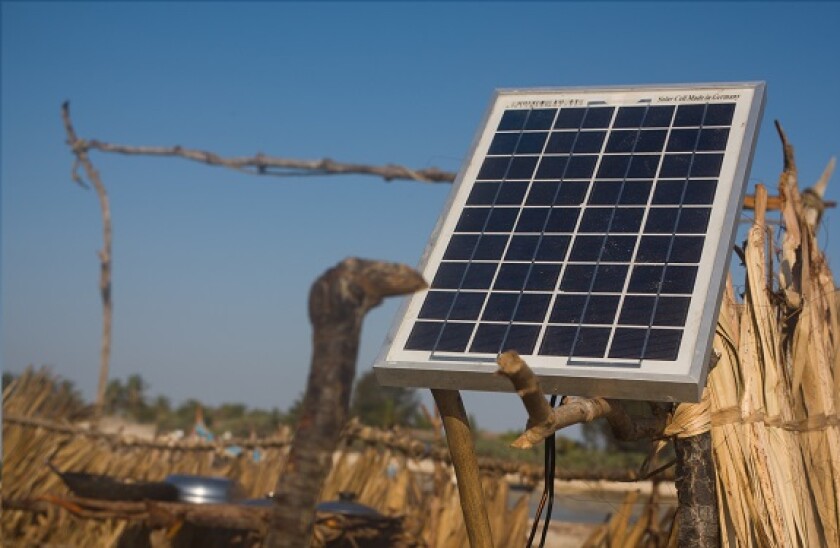Since the start of February, 17 Chinese borrowers have raised Rmb23bn ($3.54bn) from carbon neutrality deals, according to data compiled by GlobalCapital. Most of the transactions, which were sold by state-owned enterprises, were marketed in the onshore interbank market, but international investors will soon be able to buy in as well. China Development Bank's carbon neutrality bond, planned for Thursday, will be internationally certified and available to investors through Bond Connect.
The offering comes as China moves toward its goal of being carbon neutral by 2060. The government released its 14th "five year plan" last week, which included references to the country's climate-related targets. These include reducing energy intensity by 13.5% and carbon intensity by 18%, as well as a goal for non-fossil fuels to account for about 20% of China's total energy mix by 2025.
China's efforts to raise money through carbon neutrality bonds come amid a boom in China's wider green bond market. A report by DBS Bank this week showed that China's green bond market is the second largest in the world, with $150bn of cumulative issuance since 2016. A number of new borrowers, in particular property companies, have jumped into the sector this year as well.
These efforts are laudable, but they are best taken with a pinch of salt.
China has long encouraged its leading state-owned issuers, especially Bank of China, to sell headline-grabbing transactions to show its commitment to key issues. The bank is usually the flag-bearer for China’s key initiatives, including its fight against climate change. But more often than not, there is little follow-up from other borrowers in the region.
A look at China's general energy policies should also make one wonder if the country's big bond sales are much more than just lip service. The country continues to disappoint the international audience when it comes to the need for aggressive and tangible actions to cut back on its carbon output.
China, which according to DBS accounts for 28% of the global carbon dioxide emissions, is still a major contributor to the world's use of coal power. It has supported overseas coal projects through its Belt and Road Initiative, as well as domestically. Despite China's long term plans, its coal power output shows no signs of abating. The Global Energy Monitor, which tracks coal use around the world, reported that China expanded its coal-fired power capacity by 38.4 gigawatts in 2020, far surpassing the rest of the world. India, which had the second most new capacity, added two gigawatts in comparison.
China's carbon neutrality bonds are being touted as an important sign of it moving toward its goal of carbon neutrality. But these capital market transactions are just one part of the process. The funds raised mean little if new coal power plants are still being built and the nation’s emissions are high.
This gives international investors an opportunity to push China to take further action.
The government may be difficult to lobby from abroad, but international concerns and strong advocacy could bring about change. For one, investors can, and should, be thorough in their assessment of the carbon neutrality bonds to make sure that the proceeds are used in effective, transparent and measurable ways.
Additionally, investors should use their access to Chinese issuers of carbon neutrality bonds to discuss further action. Bondholders should question initiatives around divestment and demand more rigorous standards for new projects.
China's borrowers have been keen to attract international money to their green deals and assert their leading position in the field of sustainable capital markets. Having international investors participate while calling for more action could result in more momentum for Chinese policy changes.
There are examples of this working in the past. Just look at China's standards for green bond issuance. The country had long included "clean coal" on its list of projects eligible for green bonds. But repeated pushback, questions and demand for standards in-line with international guidelines led China to cut clean coal from the eligibility list in 2020.
Capital market transactions are an important tool in China's arsenal for fighting climate change, but they cannot be the only one. Only a broader, comprehensive and wholehearted approach to becoming more sustainable can bring about real change.

